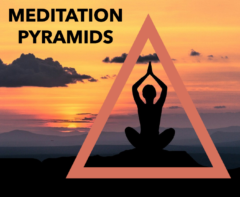Nature sounds are like nature’s lullabies engineered to soothe and calm the mind. When you’re surrounded by the whispers of rustling leaves or the gentle rhythm of ocean waves, it’s like getting an instant pass to a calmer state of mind. Research even backs it up, showing that these sounds can lower stress levels and help with anxiety.
Meditation on its own is already a powerful tool for centering the self, and when you add nature sounds to the mix, it heightens the experience. Picture yourself sitting comfortably, focusing on each breath while streams of peaceful, natural tunes create a cocoon around you. It helps deepen your concentration, as the familiar and ancient sounds of the natural world return us to a more primal state.

Now, can you meditate to nature sounds? Absolutely! In fact, many people find that these sounds create the perfect backdrop for meditation. The constant and yet varied sounds of nature help anchor your focus, blocking out distractions and making it easier to slip into that sought-after meditative state.
It’s more than just relaxation, though. Nature sounds have psychological and physiological benefits too. They can slow down your heart rate, reduce cortisol levels, and even enhance your overall mood. It’s no wonder that these sounds are often a go-to choice for those looking to augment their meditation practice. Whether you’re a seasoned meditator or someone just starting out, integrating the sounds of nature can enrich your experience, making meditation accessible and enjoyable.
Recognizing the Best Nature Sounds for Meditation
When it comes to meditation, not all sounds are created equal. Each person’s ideal sound can vary, but certain natural noises have been shown to offer substantial benefits for many. Think about the steady murmur of a babbling brook or the rhythmic patter of rain. These are classics for a reason and have a way of training the mind to relax and stay present.
For something that keeps you grounded and focused, the sound of ocean waves tends to be a crowd favorite. The consistent ebb and flow can mimic the rhythm of breathing, making it a superb tool for meditation. Likewise, the bird calls at dawn can help center your thoughts, bringing a refreshing energy to your practice.
Now, what sound is good for meditation? According to some practitioners, sounds that carry low frequencies and balance with higher tones, like waterfalls or forest ambiance, work wonders. They create a gentle soundscape that encourages mental expansion and creativity, helping your mind to drift into a meditative state without effort.
Testimonials from seasoned meditators and even some recent studies suggest that these nature sounds don’t just help with focus—they also have the added benefit of being incredibly relaxing. This makes them ideal for anyone looking to combine meditation with stress relief, promoting a holistic sense of well-being.
Exploring various nature sounds allows you to find what really resonates with you personally. This way, meditation becomes a tailored and enjoyable journey, rather than a generic routine. So grab those headphones and start experimenting! Maybe what works for you is the unexpected chatter of a forest, or the simple, calming hum of crickets on a summer night.
Finding Your Perfect Nature Sound
Choosing the right nature sound for your meditation practice is all about personal connection. Everyone finds different sounds comforting or refreshing, so it’s worth taking your preferences into account. Enjoy the freedom of experimenting with various sounds until you find the one that truly resonates with you.
For many, the sound of rain is particularly soothing. It has a universal appeal thanks to its gentle consistency and the memories it often evokes – cozy days spent indoors, calming nocturnal showers. Others might find the sounds of a crackling fire more relaxing, reminiscent of warm gatherings and intimate evenings.
The science behind why these sounds are calming lies in their natural structures. Nature sounds contain unique frequencies that can trigger a relaxation response in the human brain, promoting a sense of peace and tranquility. Consider the sound of wind rustling through leaves – it’s unpredictable, yet rhythmically consistent, which helps keep the mind engaged yet relaxed.

When pondering “what’s a sound from nature that calms you?”, it’s useful to reflect on personal experiences that brought joy or tranquility. Was it an early morning walk with birds chirping? Perhaps the distant rumble of thunder that feels like nature’s own white noise?
Feesback gathered from community forums suggests that personal stories often lead to meaningful choices. Reading how others have found their perfect meditation companions can be inspiring and give ideas on where to start your own search.
Sounds that have personally touched you are the ones most likely to enhance your meditation practice. Don’t shy away from unusual or unexpected choices; what’s important is the connection and peace they bring to your mind.
The Holistic Benefits of Listening to Nature Sounds
Beyond enhancing meditation, listening to nature sounds offers an array of benefits that go hand in hand with mental well-being. In a world often dominated by the hustle and bustle, these sounds provide a sanctuary of calm, much like hitting a refresh button for your mind.
Scientific research highlights the benefits of nature sounds beyond mere relaxation. These sounds can help reduce the perception of pain, improve focus, and elevate mood. The gentle rustle of leaves or the subtle chirping of crickets has profound effects that go far beyond their auditory pleasure.
Many cultures have long recognized the significance of natural sounds in promoting well-being. Ancient practices often incorporate these elements, tapping into their ability to harmonize and balance the human spirit. By weaving in these sounds, cultures across the globe have managed to foster spiritual and emotional well-being for centuries.
Is listening to nature sounds good for you? Absolutely. They serve as a natural antidote to stress and anxiety, and their therapeutic qualities make them invaluable for mental health. Environments enriched with nature sounds are often linked with better attention spans and a boost in cognitive abilities.
For those searching for an easy, effective tool to enhance their daily routine, incorporating nature sounds might just be the answer. Whether it’s for meditation, relaxation, or even studying, these harmonies of the natural world can offer more than just a pleasing background—they’re a gateway to greater peace and mental sharpness.

Alan, thank you for this beautiful guide on incorporating nature sounds into meditation! It’s fascinating how you describe nature sounds as a ‘cocoon’ that helps us slip into a meditative state. I’ve been meditating for a while but hadn’t considered how intentional sound choices could deepen my experience.
Do you have any recommendations for someone who meditates in a noisy environment? Are there specific sounds that work better to mask background noise while still promoting a calm atmosphere? Also, the science you mentioned about nature sounds helping reduce pain was intriguing—could you explain more about how that works?
Looking forward to trying out the sound of rain next time!
Hi Florya,
Thank you so much for your kind words! I’m so glad you found the guide helpful and that the idea of nature sounds as a ‘cocoon’ resonated with you—it’s such a powerful way to describe how these sounds can help us enter a deeper state of mindfulness.
For someone meditating in a noisy environment, I’d recommend sounds that are both continuous and rich in texture, as they can help mask external distractions. White noise or pink noise can be really effective in this case, as they create a constant sound blanket that dulls background noise without being jarring. Rain sounds or ocean waves are great options too, as their rhythmic patterns naturally encourage a sense of calm, while their dynamic yet soothing qualities make it easier to maintain focus. If you’re looking to mask chatter or urban noise, sounds like distant thunder or forest ambience with birds might work well too, as their lower frequencies can blend seamlessly with the noise around you.
As for the science behind nature sounds and pain reduction—it’s fascinating! Studies have shown that listening to natural sounds like rain, wind, or birdsong can activate areas of the brain associated with relaxation and emotional regulation. These sounds often trigger a “rest-and-digest” response, which is the opposite of the stress-induced “fight-or-flight” response. As a result, heart rate and blood pressure can drop, and cortisol levels (the stress hormone) decrease, making it easier to cope with both physical and emotional discomfort. Over time, these calming effects can help reduce chronic pain and stress.
I’m excited for you to try the sound of rain—it’s a personal favorite of mine, especially for creating a calm, immersive atmosphere. I’d love to hear how it goes for you! Let me know if you have any more questions or need further suggestions!
Kindest regards
Alan
Nature sounds are the original music! No wonder they’re very soothing and appropriate for any person wanting to meditate. Whatever you’re a beginner or more experience, accompanying your meditation with nature sounds will always be a winning move. Personally, I enjoy the sound of the waves of the sea, I find it very relaxing. But I’m not surprised to see that many people like the sound of the rain.
Thank you for sharing your thoughts! I completely agree—nature sounds truly are the original form of calming music. They have an unparalleled ability to ground us and bring us closer to a state of mindfulness. The sound of waves is such a classic choice; it evokes a sense of tranquility and connection to the vastness of the ocean. Similarly, the rhythm of rain has that soothing, almost meditative quality, like a gentle reminder to slow down and be present.
It’s fascinating how different sounds resonate with people depending on their personal preferences and experiences. Have you ever explored combining nature sounds with meditation apps or guided sessions? They can add an extra layer of relaxation and focus.
Thanks again for your thoughtful comment—it’s always inspiring to hear how others connect with nature through sound!
Regards,
Alan